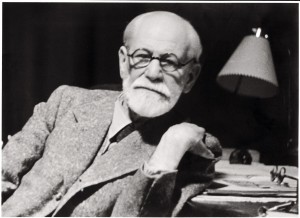I haven’t slept much this week because first I learned that literature is dead, and then I read that ideology/consciousness is determined by material circumstances. Let me deal with the first nightmare.
Literature is dead! In another words, because we all act out of radical evil, literature along with its writers and readers no longer have anything honest (for lack of a better word) to say about being human. This claim, I feel, is itself an act of radical evil, for it silences the multitude of voices that continue to express themselves through the writing and reading of literature. I mean, how can anyone claim that the stories, testimonials, reflections of those whose discourse runs contrary to hegemonic discourse do not constitute literature? Who are we to silence them? Perhaps those in mourning are thinking of themselves as authors and readers who have lost interest in contributing to the conversation still generated by literature. Actually, I think people who lament the death of literature are deceiving themselves (dishonestly). Literature as language is a manifestation of the unconscious, so if it were dead we would be mute. However, we continue to speak honestly about what it means to be human, and the conversation continues.
Also, I would like to add that Kant did suggest that a conversion from radical evil acts to moral acts that coincide with our moral thoughts (moral as in for the greater good) is possible. There is redemption, not in the religious sense from a God or Being outside the self but through the individual’s effort. This is as far as I got, but it seems to me that we are not doomed to a permanent state of radical evil, and there is literature out there that is ALIVE and KICKING!
Now to Althusser:
1. “Ideology represents the imaginary relationship of individuals to their real conditions of existence.” We rely on language to establish our reality so we are always victims of ideology: in other words, material conditions, or things, first and consciousness second.
Those who listened to the language of Gandhi, King or Sui Kyi were the victims of certain ideologies and found agency with another.
What about art? Surely there are works of art that reflect a myriad of hybrid thought systems that successfully challenge state ideologies.Where does individual human creativity fit? Are we creative because we are victims of ideology? What about the middle-class writer whose act of writing subverts dominant discourse?
What about the wealthy citizen giving up all vast wealth to work as a volunteer? Aren’t his or her actions a reflection of individual agency?
2. “Ideology has material existence.” Ideology manifests itself through actions that become practices.
What about all the actions that manifest numerous ideologies? In a pluralistic environment of competing ideologies there must arise vast grey areas where actions (of resistance) reflect an ever-evolving patchwork of consciousnesses!
3. “All ideology hails or interpellates concrete individuals as concrete subjects.” 4. “Individuals are always already subjects.”
What about refugees born in a refugee camp and arriving in Victoria on a boat? What is their ideology? Who hails them and will they respond? Whose subjects are they?
LACAN
The id is the signifier that emerges as language. So Lacan does not agree that things come before consciousness, or that things come first and language exists to name them.
No, “consciousness begins with the letter”. This means language is the signifier, which is always displaced from the object of desire. Like Saussure, Lacan believes that the bar between the signifier and the signified is arbitrary and cannot be crossed. We are forever barred from what we desire and language can only function metonymically (Freud’s displacement) with an occasional wondrous metaphor (Freud’s condensation) popping up once in a while.
The object of desire can only be sensed as a lack that is occasionally manifested through metaphor. For example, a dove might mean peace. We desire peace, or we sense that it is something desirable, but we don’t know what it is. The image of the dove only offers a fleeting glimpse of what we think we lack.
(The paradox is that these metaphors revel a momentary glimmer of what we desire when there is a certain amount of distance between the object of desire and the signifier)
So it seems that we can never be present to ourselves. We can never satisfy our desires because the signified, the object of desire is perpetually deferred.
Meaning is always out of reach, but that is how language creates the subject. Without the desire for the ever-elusive object, language would be unnecessary. If we could know the unconscious, language would never be needed. Language is necessary because only through conversation can we engage the unconscious and develop as human beings.
The conversation continues…
